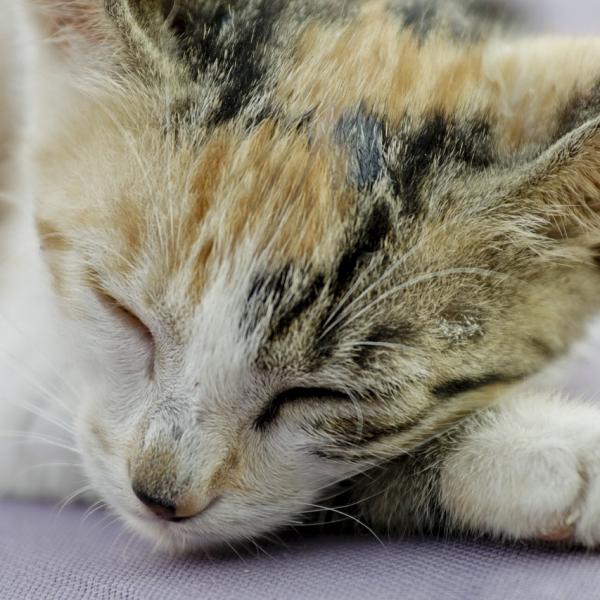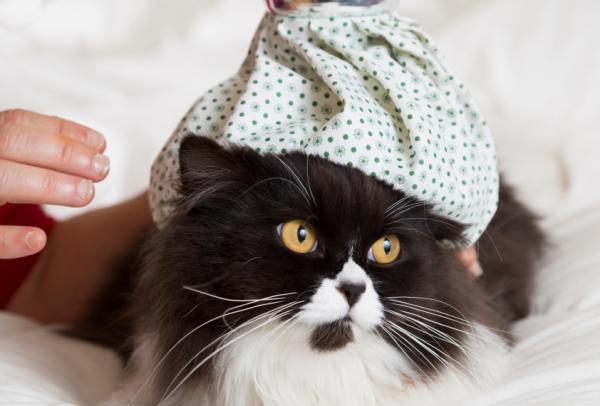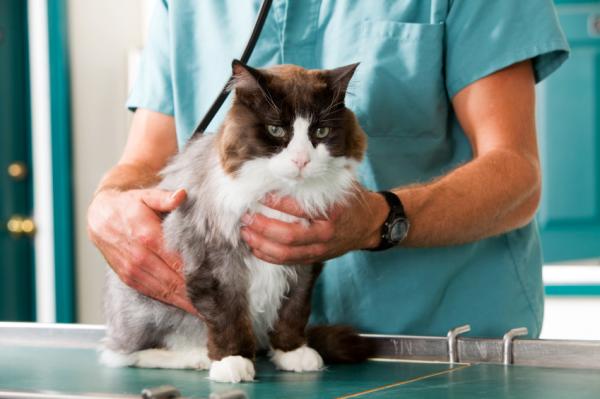Gastroenteritis in cats

Although the cat is characterized by its genuine independent character, it also needs our attention, care and affection, since as owners we have the responsibility to guarantee a complete state of health and well-being. For this reason it is important that we know how those most common diseases in cats, to be able to identify them and act appropriately in order to preserve the health of our pet.
In this article we tell you everything you need to know about the Gastroenteritis in cats, keep reading!
What is gastroenteritis?
Gastroenteritis is a inflammation that affects the gastric mucosa and the intestinal mucosa, causing an alteration in the functioning of the digestive system.
Its severity depends on its etiology, since as we will observe later, it can have multiple causes. However, those that are mild and are related to the ingestion of a food in poor condition or with a digestive difficulty, usually remit sporadically in a period of approximately 48 hours.
Causes of gastroenteritis in cats
The causes of gastroenteritis can be very diverse and will largely determine the course and severity of the symptoms. Let’s see below what they are:
- Food poisoning
- Presence of intestinal parasites
- Bacterial infection
- Viral infection
- Foreign bodies in the digestive system
- Tumors
- Treatment with antibiotics
Symptoms of gastroenteritis in cats
If our cat suffers gastroenteritis we can observe the following symptoms:
As we mentioned earlier, if we observe these symptoms we should suspect gastroenteritis and go to the vet urgently, because although it is a common disease it can sometimes involve great gravity.

Treatment of gastroenteritis in cats
The treatment of gastroenteritis in cats it will depend on the underlying cause, but we must mention the following therapeutic strategies:
- If the appearance of vomiting and diarrhea does not show warning signs and the cat does not show fever, treatment will be carried out mainly through oral rehydration serums and dietary changes, waiting for a full recovery in the maximum period of 48 hours.
- If the cat has a fever, you should suspect a bacterial or viral infection. In this case it will be normal for the veterinarian to prescribe antibiotics or, if he suspects a certain virus, use a test to verify the presence of the virus and study the possibility of prescribing an antiviral. We must bear in mind that not all viruses respond to drug treatment and in this case a rehydration treatment will also be carried out and the complete course and end of the disease will be expected.
- If in the two previous cases the disease does not improve in an approximate period of 2 days, the veterinarian will perform blood, stool and urine tests, may also include x-rays to rule out the presence of foreign bodies or tumors in the thoracic cavity.
The prognosis of gastroenteritis in cats will also vary greatly depending on the underlying cause, being excellent in the case of indigestion and serious when it comes to tumors or intestinal obstructions.

This article is merely informative, in .com we do not have the faculty to prescribe veterinary treatments or make any kind of diagnosis. We invite you to take your pet to the veterinarian in case of any type of condition or discomfort.
If you want to read more articles similar to Gastroenteritis in cats, we recommend that you enter in our section of intestinal problems.


